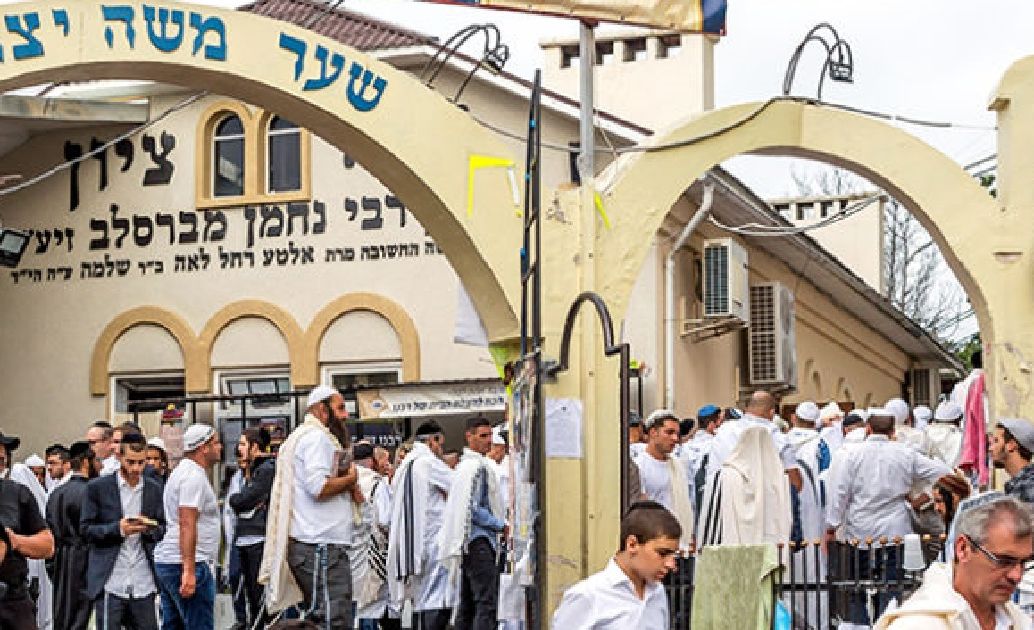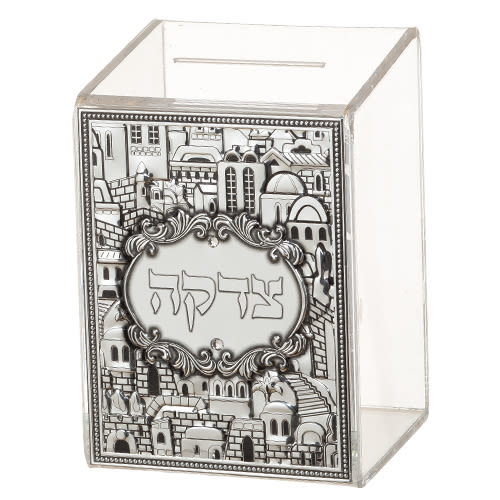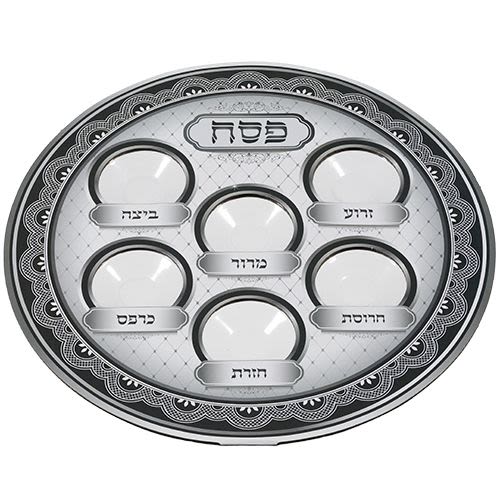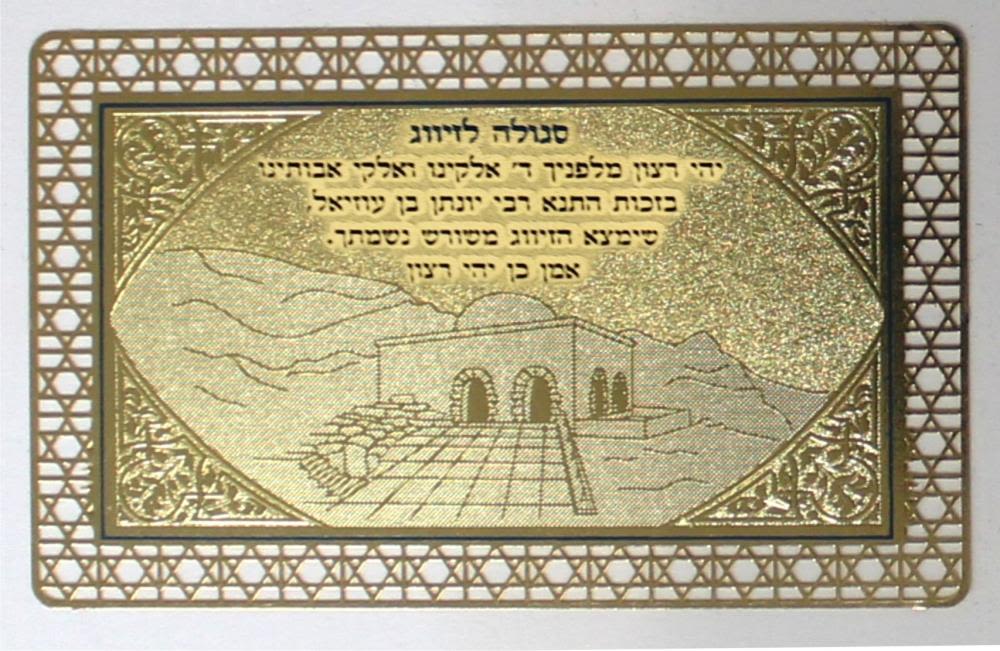
Pull Me Out, Rabbenu!
Rebbe Nachman's promise, all by itself, is worth the $1,000 that a trip to Uman currently costs, with all the hardship, disruption and inconvenience. But that's not all...

Unless we are saintly tzadikim, most of us are going to be spending at least some brief amount of time in Gehinnom after we die, being purified. But Jewish Gehinnom is different from warped Xtian notions of ‘hell’ in the following general ways:
Firstly, unless you’re a heretic, Jewish Gehinnom doesn’t last forever. The maximum amount of time a soul could spend there is up to 11 months, which is why we say the Kaddish prayer for departed loved ones for that amount of time. After that, the soul is released to Heaven, where it enjoys eternal spiritual bliss in reward for all the good deeds that it did while alive.
Secondly, Jewish Gehinnom doesn’t atone for the sins between man and man. If you broke Shabbat, ate treif, and otherwise transgressed the mitzvot between man and G-d (and you didn’t make teshuva for that before you died) – then Gehinnom will clean those spiritual stains off your soul.
But if you kept Shabbat 100%, and ate only glatt (strictly) kosher; and dunked in a mikva every day – but you treated people like dirt, or robbed them, or hurt them with your words and actions, or didn’t let your neighbor borrow your lawnmower as an act of spite, (and you didn’t sincerely apologize and fix things up before you died) – then Gehinnom can’t help you, and you’ll have to come back down for another reincarnation.
Thirdly, Jewish Gehinnom is actually a kindness. It’s by no means a ‘given’ that every evil soul even gets there. We’ll go into more detail another time, but the particularly nasty cases are fated to wonder the world as dispossessed spirits, before they even get permission to enter Gehinnom to get cleaned up.
Fourthly, Rebbe Nachman can pull people out of Gehinnom, even if they’re the worst of the worst. On page 123 of ‘Tzaddik‘, the English translation of Chayay Moharan it says the following:
“While he was still alive, the Rebbe had made a formal promise in front of two valid witnesses: if someone were to come to his grave side after his death, give a penny to charity in his memory, and recite the Ten Psalms he had prescribed (the Tikkun Haklali), he would span the length and breadth of the universe to save him. “I’ll pull him out of hell by his side-curls,” he said. It made no difference who it was or how gravely he had sinned. All he had to do was to take it upon himself not to return to his folly.”
Once again, we have to understand what’s being said, and who is saying it. Here’s another quote from page 263 of ‘Tzaddik’:
“People used to say of the Rebbe, “There’s no middle way.” Either he was what his opponents, who speak arrogantly against the righteous, said he was. Or else, he really was a true Tzaddik, in which case he was an entirely unique, exalted and awesome figure, quite beyond the grasp of the human mind.
“Many times the Rebbe himself repeated the popular catchphrase, ‘there’s no middle way,’ thereby indicating that it was in fact the truth.”
Even today, there is no middle way! No-one can polarize a room, or a discussion, quite like Rebbe Nachman can…(just ask anyone who’s brave enough to ‘like’ BreslevIsrael articles on their Facebook page.)
His promise, all by itself, is worth the $1,000 that a trip to Uman currently costs, with all the hardship, disruption, and inconvenience. But that’s not all.
According to Breslev oral tradition, the Rebbe also said that if a person followed his advice, and did an hour a day of hitbodedut, he would never see Gehinnom in the first place.
In Strive for Truth, Rav Dessler explains that a key characteristic of wicked people is that they always believe themselves to be much better than they actually are. But when you are speaking to G-d for an hour a day, you suddenly realize that you, too, have a lot of evil stuff still in your soul, that needs acknowledging and cleaning up.
You can’t lie to yourself any more that everything is always ‘everyone else’s fault’, which is actually great news, albeit very humbling, because whatever we fix down here, doesn’t need to be fixed ‘down there’ with an excruciating trip to Gehinnom.
Don’t let the PC brigade fool you! G-d means business, and there are serious consequences for not doing the spiritual work we were sent down here to do. With that in mind, here are my ‘top tips’ for having the best chances of avoiding a visit to Gehinnom:
- Avoid anything, or anyone that could pull you or your children away from G-d like the plague
- Do an hour a day of hitbodedut, where you come clean and tell G-d everything on your mind and in your soul, including all the nasty stuff
Let’s hope that there will be peace in the Ukraine, so we can all take a trip to Uman, to Rebbe Nachman’s grave, give some charity, and then say the Tikkun HaKlali.











Tell us what you think!
Thank you for your comment!
It will be published after approval by the Editor.